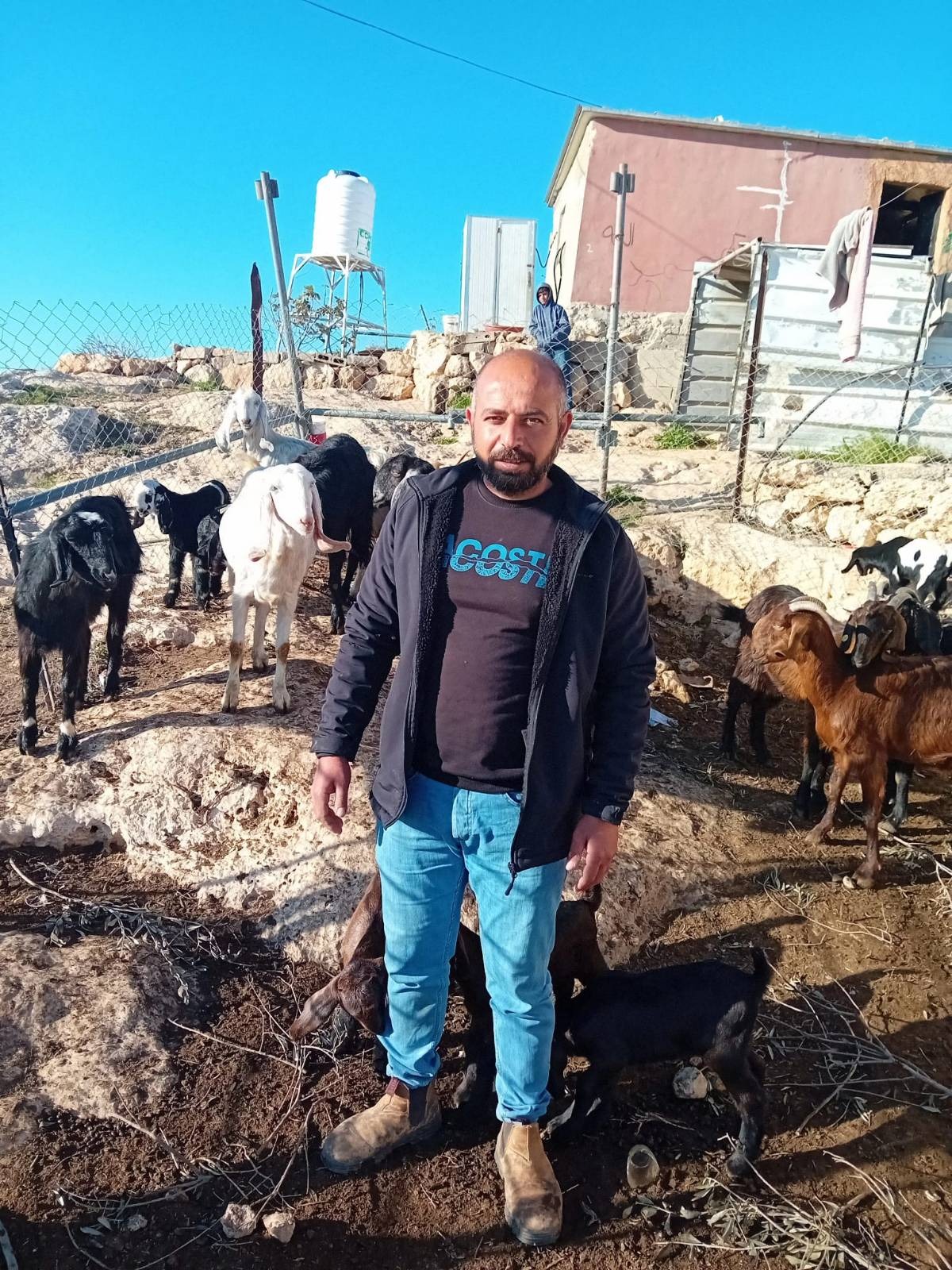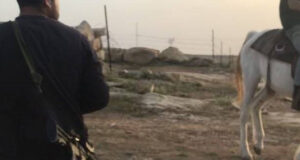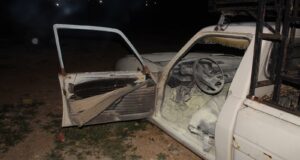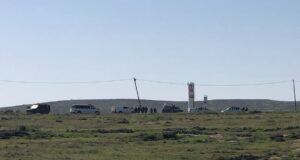16 January 2024 | International Solidarity Movement | Masafer Yatta
Muhammed being led away by IOF soldiers. Credit: ISM.
For the villagers of Khallet Al Dabaa, in Masafer Yatta, shepherding is a traditional way of life. One which they have followed on their traditional lands in the West Bank’s South Hebron Hills since Ottoman times. For the Israeli Occupation Forces (IOF) however, it is apparently an existential threat and one which needs to be dealt with severely.
Yesterday afternoon (Monday 15th January), Khallet resident Muhammed Debabse was with his flock on a hillside on village lands. It appears that, in response to illegal settlers from a nearby hilltop outpost taking exception to this, the IOF soldiers arrived soon after. They summarily detained Muhammed and took him away. His whereabouts were not known until the lawyer engaged by the family was able to establish that he had been taken to Kharyat Al Arba police station near Al Khalil (Hebron).
Anxious hours passed for his family until, at around 8pm, they received notification from the lawyer that Muhammed would be released but only on payment of a 1,000 NIS (£250) fine, a significant sum of money for the family. The fine being paid, Muhammed eventually returned home late in the evening, ten hours or so after being detained.
So what was his “crime”? The official letter (written in Hebrew only) which the police gave him on release did not specify any offence and only made reference to a “financial penalty”. In the eyes of the occupation however, any expression of ownership of the land by the Palestinians is an act of resistance and that’s the “crime” which Muhammed, along with his fellow villagers are guilty of.
Since the genocidal attack on Gaza began, the Israeli government has used it as an excuse to increase crimes in the West Bank and forcible expulsion of Palestinian from their ancestral land. Masafer Yatta has been no exception.
 International Solidarity Movement Nonviolence. Justice. Freedom.
International Solidarity Movement Nonviolence. Justice. Freedom.



